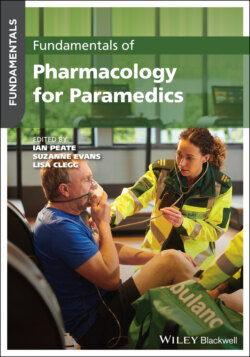Читать книгу Fundamentals of Pharmacology for Paramedics - Группа авторов - Страница 49
Introduction
ОглавлениеThe world of medications is vast and learning about them can be daunting for all allied healthcare and nursing profession students, as well as registered professionals. The people you care for may have extensive past medical history and lists of medications specific to treatment interventions. You need to be able to assess, review, administer, consider interactions, monitor and evaluate the effects of these medications.
Regulatory and professional bodies have specific standards of practice which are designed to be applicable to all areas of a healthcare professional’s work. In the United Kingdom, paramedics are accountable to the public and their profession through the Health and Care Professions Council (HCPC). There are two sets of HCPC standards that govern paramedic practice:
HCPC (2016) Standards of conduct, performance and ethics
HCPC (2014) The standards of proficiency for paramedics (latest review point 2020 to be published).
These two sets of standards apply to all areas of paramedic practice including medicines and pharmacological management (i.e. knowledge, understanding and clinical application) as related specifically to the paramedic role.
The HCPC (2016) and HCPC (2014) standards are essentially frameworks within which all registered UK paramedics must work. Ambulance services and paramedics outside the UK will be guided by equivalent organisations. Examples of these are:
Australian Council of Ambulance Authorities (CAA), covering Australia, New Zealand and Papua New Guinea: www.caa.net.au/
Paramedicine Board, Australia: www.paramedicineboard.gov.au/Professional‐standards.aspx
Australian Clinical Practice Guidelines: Ambulance and MICA Paramedics (2018): www.ambulance.vic.gov.au/wp‐content/uploads/2018/07/Clinical‐Practice‐Guidelines‐2018‐Edition‐1.4.pdf.
